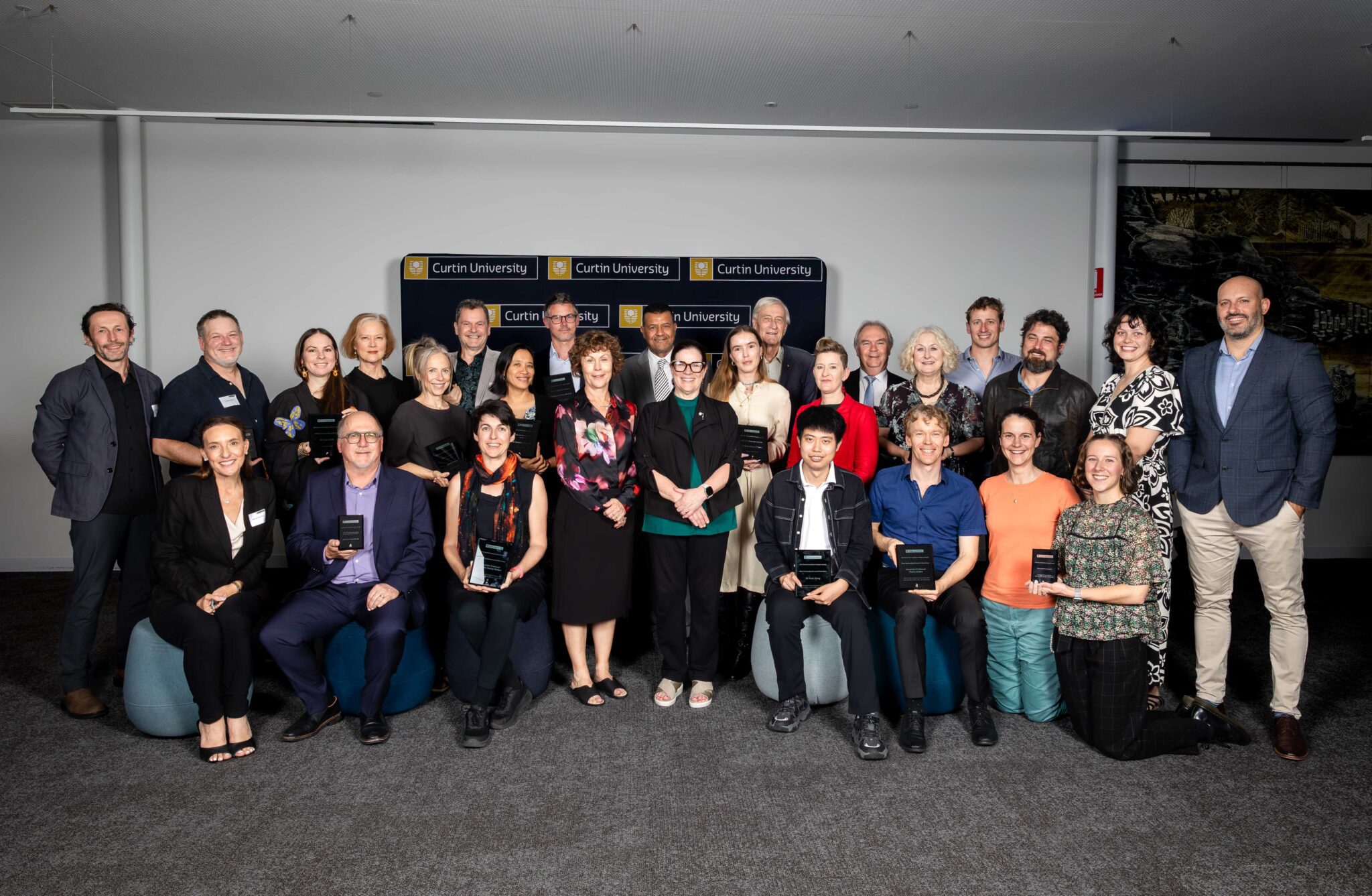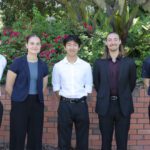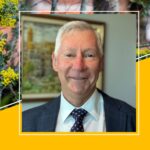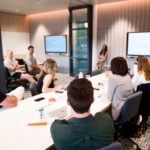Curtin University has celebrated its world-class research community and most prominent media performers at the 2025 Research Excellence and Impact Awards.
The annual event recognises Curtin’s excellence in research, engagement and media outreach including its significant real-world impact for people, communities and the planet.
Among this year’s award winners were Early Career Researcher of the Year Dr Chloe Maxwell-Smith, who was recognised for her work influencing health policy locally and abroad, including UK cancer rehabilitation guidelines and a behaviour change manual for physiotherapists at Royal Perth Hospital.
Evolutionary biologist Professor Morten Allentoft’s internationally renowned studies of ancient DNA saw him take out Mid-Career Researcher of the Year.
By revealing common ancestries, Professor Allentoft’s insights help to break down barriers between different groups of people and have made their way into history books, museum exhibitions and classrooms worldwide.
The School of Civil and Mechanical Engineering had two winners in Professor Mohamed Shahin and Professor Michele John.
Professor Shahin’s work includes pioneering “bio-cementation”, which uses bacteria to bind and self-repair road materials as a green alternative for road construction which improves durability and lowers maintenance costs while contributing to Australia’s 2030 net-zero goals.
Professor John was named Sustainability Researcher of the Year for allowing educators to develop their sustainability knowledge via The Routledge Handbook of Global Sustainability Education and Thinking in the 21st Century.
The first sustainability focused resource book of its kind, Professor John’s handbook empowers educators to understand and address complex challenges such as climate change and has already had an international impact, being downloaded in 57 countries so far.
Dr Cass Lynch and the Art of Peace team, both from the School of Media, Creative Arts and Social Inquiry, were named Indigenous Researcher and Research Team of the Year respectively.
A Koreng Wudjari Noongar woman, Dr Lynch rescued a colony of trapdoor spiders — Dr Lynch’s totem —from an area of Porongurup Range National Park flagged for construction.
Dr Lynch successfully relocated the colony, with the project’s findings being discussed in Australian Geographic, keynote speeches, panels, art installations, schools and more.
Art of Peace is a partnership with the Art Gallery of Western Australia (AGWA) combining in-country research and collaboration with creative communities in Bosnia and Herzegovina, Rwanda, and Timor-Leste to bring artistic works addressing trauma, recovery and reconstruction to Perth.
Hundreds of thousands of visitors attended The Art of Peace: Art After War exhibition at AGWA — including many student groups — and was also integrated into Curtin’s undergraduate units.
Curtin Deputy Vice-Chancellor Research Professor Melinda Fitzgerald congratulated all recipients, noting their achievements demonstrated the breadth and strength of Curtin’s research and engagement activities.
“These awards highlight the remarkable talent across Curtin’s research community — people who are making tomorrow better through discovery, creativity and collaboration,” Professor Fitzgerald said.
“It’s inspiring to see our researchers not only contributing new knowledge in their fields but also ensuring their work informs public understanding and helps shape a better future.”
The winners of research awards included:
Early Career Researcher of the Year
Dr Chloe Maxwell-Smith – Curtin School of Population Health
Mid-Career Researcher of the Year
Professor Morten Allentoft – School of Molecular and Life Sciences
Senior Researcher of the Year
Professor Mohamed Shahin – School of Civil and Mechanical Engineering
Sustainability Researcher of the Year
Professor Michele John – School of Civil and Mechanical Engineering
Indigenous Researcher of the Year
Dr Cass Lynch – School of Media, Creative Arts and Social Inquiry
Research Team of the Year
Art of Peace: Art After War – School of Media, Creative Arts and Social Inquiry
The evening also shone a light on academics who had gone above and beyond in promoting the University’s research to a wide audience, by sharing their expertise with the media.
Each Faculty’s most prolific commentators were acknowledged, as well as the biggest contributors to renowned outlets, The Conversation and the Australian Science Media Centre.
Curtin Corporate Communications Director Vanessa Beasley said it was important for researchers to amplify their voices and share their findings and knowledge far and wide.
“More than ever, the world needs the voices of experts in their fields to battle the ongoing spread of often harmful disinformation,” Ms Beasley said.
“Our researchers and communicators are helping to solve complex challenges and share their insights with the wider world.
“Their passion and expertise exemplify Curtin’s vision of making a positive impact through research, engagement and thought leadership.”
The winners of media awards include:
Most Outstanding Research News Story
Cosmic mystery deepens as astronomers find object flashing in both radio waves and X-rays
Dr Ziteng (Andy) Wang, Dr Apurba Bera, Associate Professor Natasha Hurley-Walker, Dr Sam McSweeney, Dr Kristen Dage, Associate Professor Clancy James, Dr Ramesh Bhat
Most Prolific Media Commentator for the Faculty of Business and Law
John Curtin Distinguished Professor John Phillimore
Most Prolific Media Commentator for the Faculty of Health Sciences
Professor John Olynyk
Most Prolific Media Commentator for the Faculty of Humanities
Professor Tama Leaver
Most Prolific Media Commentator for the Faculty of Science and Engineering
Dr Aaron Cavosie
Media Collaboration Champion
Curtin University’s Desert Fireball Network (Dr Ellie Sansom, Dr Hadrien Devillepoix, Ben Hartig, Sophie Deam, Mia Walker, Iona Clemente)
9 News Best New Media Talent
Dr Yvonne Breitwieser-Faria
Highest Contribution to The Conversation
John Curtin Distinguished Professor Rachel Ong ViforJ
Highest Contribution to the Australian Science Media Centre
John Curtin Distinguished Professor Peter Newman



